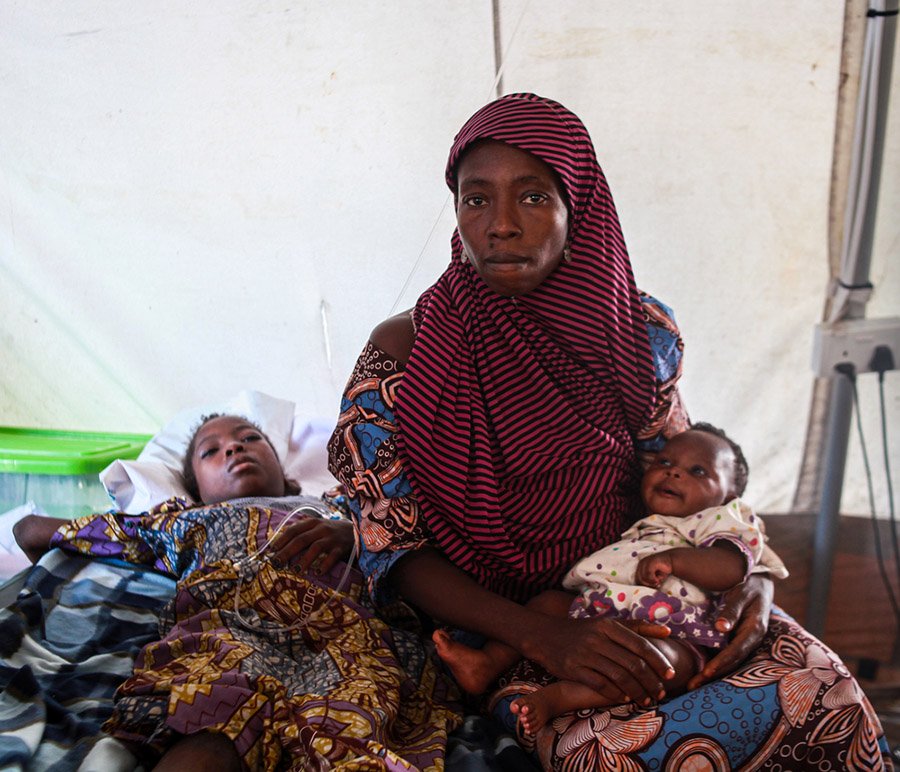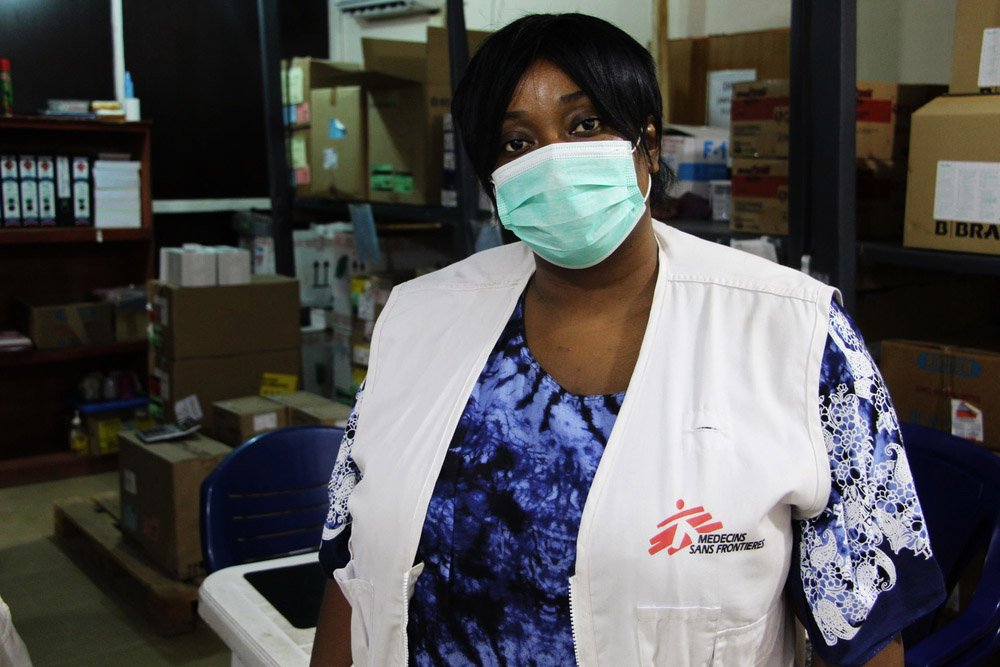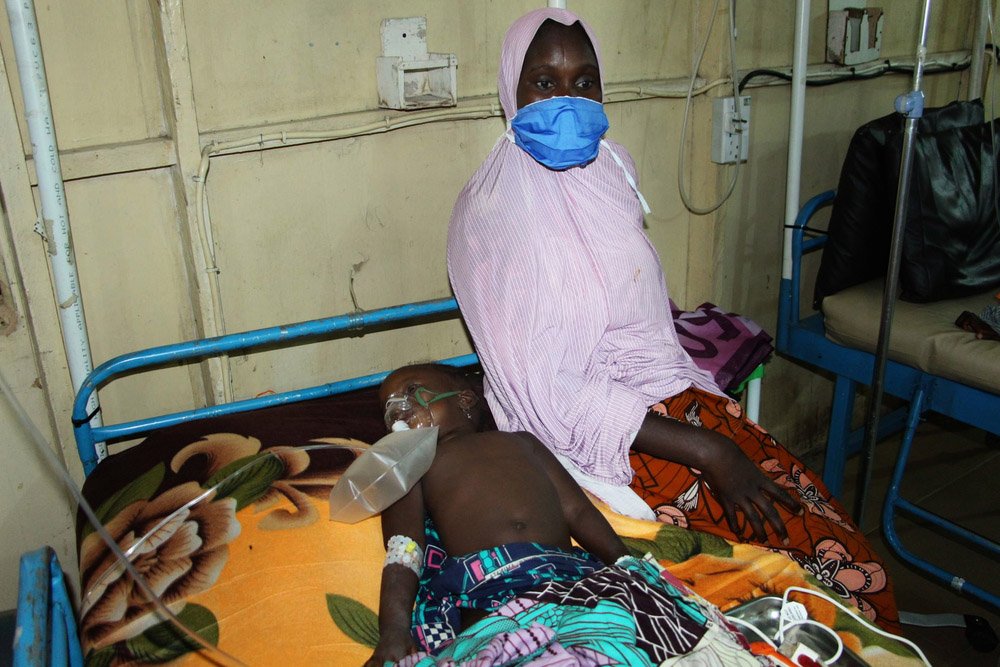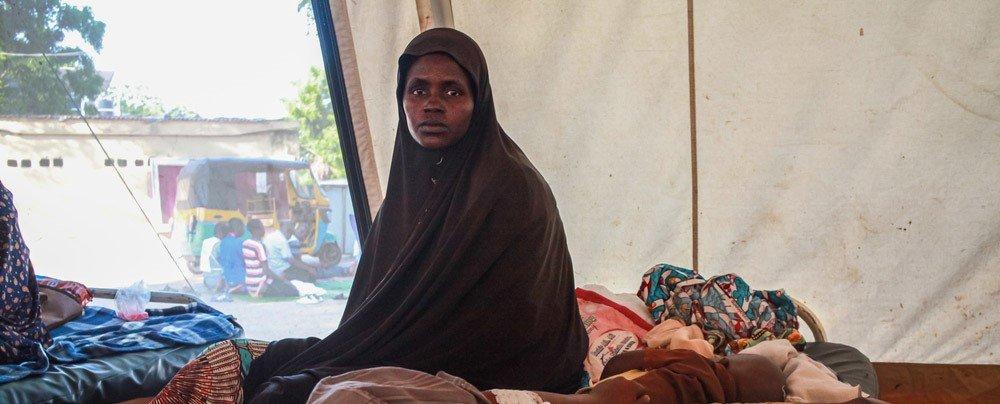With the rainy season which brings a huge uptick in rates of malaria, Doctors Without Borders (MSF) is responding to this endemic disease in northeast Nigeria. MSF teams are participating this week in the second round of seasonal malaria chemoprophylaxis (SMC) in Borno state. SMC is a yearly anti-malaria preventive programme targeted at children between 3-month old and 5-year old, the most vulnerable group affected by malaria. The programme aims to treat children at an early stage before they develop medical complications and require hospitalization.

All year round, We are treating patients with malaria in its healthcare facilities in Maiduguri, Gwoza, Pulka and Ngala. As for Rann, we are running 11 ‘malaria corners’ or ‘malaria points’ where people who have malaria symptoms can go for tests and those found with the disease are treated.
Also, this year during the peak period, we are providing support to the World Health Organization (WHO) and local health authorities in the seasonal malaria chemoprophylaxis campaign. In Maiduguri, our teams provide logistic support as well as supervision in the administration of drugs provided by the WHO, in Gwange area and more than 10 informal camps for internally displaced people (IDPs). More than 40,000 IDPs are taking refuge in these camps, which are not directly managed by the government and are often neglected by the aid system.
In 2019, MSF provided over 85,000 children under 5-year old with SMC in four rounds in Borno state. This year, MSF is supporting the WHO with its SMC, which is targeting two million children“We are prepared for this anticipated surge in malaria cases”, says Dr Blessing Ejawemokie, MSF medical team leader in Maiduguri. “Preparations were made for blood donation because severe malaria if not timely treated can lead to critical anaemia, and children may need for blood transfusion. We have voluntary blood donors and patient’s relatives also donate blood”.

Medical operations this year are complicated by the threat of COVID-19 pandemic. Protective measures have been implemented, including physical distancing during the SMC campaign, set-up of washing points, and administration of drugs by caretakers.
In Maiduguri, MSF provides also secondary health care to children affected by malaria with complications and treat them in its paediatric hospital in Gwange area. Since the beginning of the peak period in June, MSF has treated over 1,000 children in the hospital alone. “We are expanding the bed capacity in the hospital from 80 to 165 to manage the influx of patients, says Dr Ejawemokie. Sixty per cent of our patients come from the immediate host community in Gwange while 40 per cent come from other places in Maiduguri and IDP camps.”
Zarah Lawal, a mother of five whose 2-year-old daughter-Fatima Ali is being treated of malaria at the Gwange hospital commended us for our prompt response when they came to the hospital.“When I brought my daughter to the hospital, she was not conscious, says Zarah Lawal. She was finding it difficult to breathe. On arrival, she was placed on oxygen support and commenced on treatment. Her condition has now stabilised.”

Also during this peak period, our outreach teams started visiting communities and IDP camps to conduct malaria test and treat on the spot those found to be with the disease. And they will refer severe cases that require hospitalisation to an MSF hospital where they are provided with adequate care. From January to June, which means before the onset of the peak season, we have treated over 2,170 patients in its hospitals in Borno state. And 438 consultations were provided among IDPs and host community in Maiduguri via outreach mobile clinic teams.
We also run malaria programmes in other parts of Nigeria in Benue and Zamfara states, the majority of whom are children. From January to August 2020, MSF treated 3 219 patients in Benue state. In Zamfara state, we have malaria programmes inside Anka, Shinkafi and Zurmi General Hospitals, to date in 2020 we have treated 1824 children as inpatients in our paediatric ward in Anka hospital. At the community level, we treated and tested nearly 4 700 people malaria in July only, across Zamfara state. Nigeria is the country with a high burden of malaria cases. According to a WHO report, Nigeria accounted for 25% of all malaria cases worldwide and almost 24% of all global malaria deaths in 2018.
MSF has worked continuously in Nigeria since 1996 and in Northeast Nigeria since 2014. Today, MSF works in Borno, Ebonyi, Jigawa, Zamfara, Rivers, Kano, and Kebbi, responding to a variety of medical issues such as Lassa fever, neglected diseases such as noma and medical emergencies like lead poisoning. MSF continues to provide lifesaving medical care for those in need, irrespective of race, religion, creed or political conviction.
